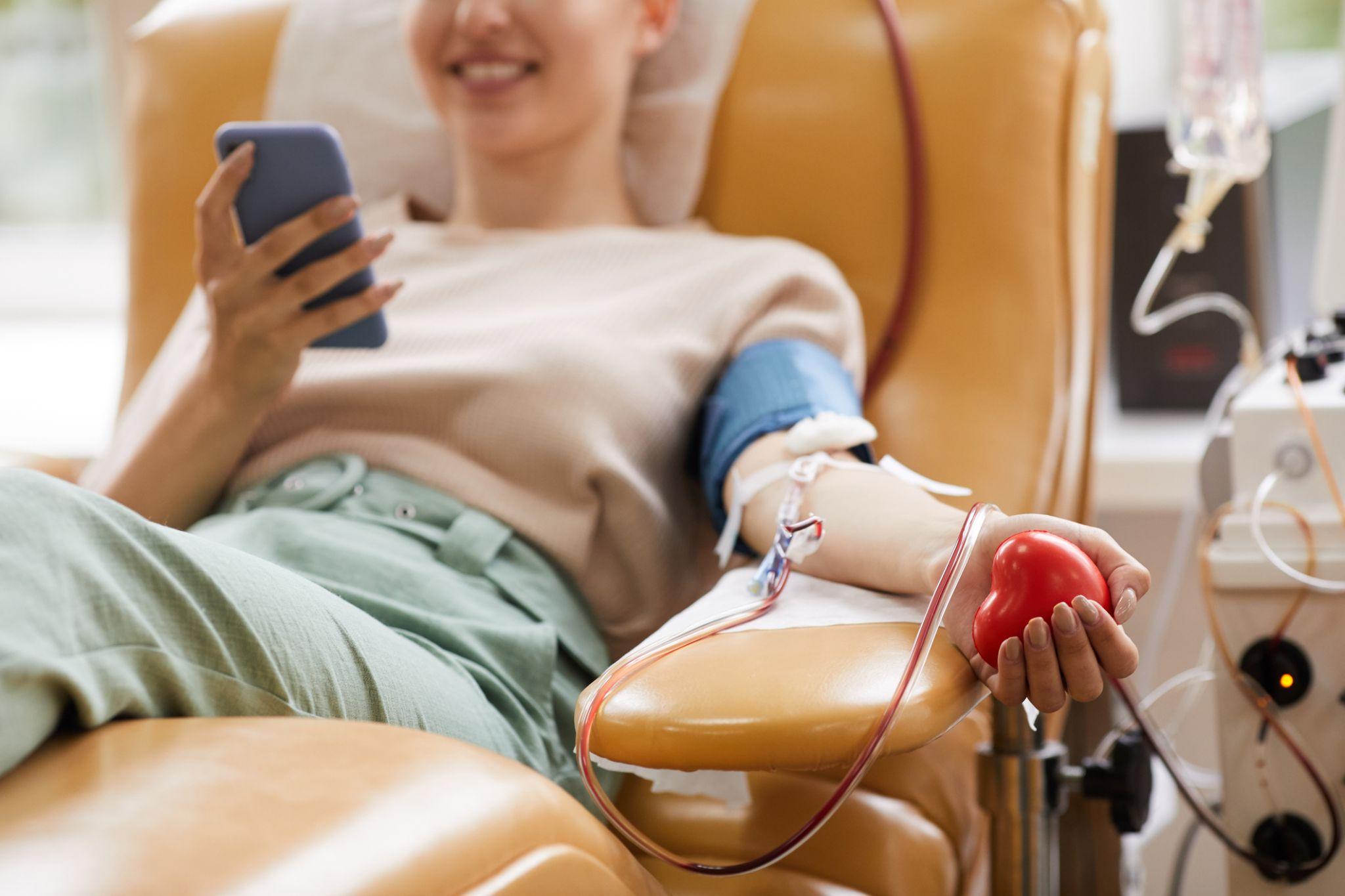Discover the biggest and most important event in the health sector in Brazil.
By donating blood, one person can save up to four lives. It’s a simple gesture that helps keep blood banks in stock, allowing thousands of lives to be saved each year. To ensure the safety of this process, there are some basic precautions. Next, learn more about them and check out the steps to donate.
Blood donation steps
The blood donation process includes a few steps. First, the potential donor must be at least 16 years old (the minor must be accompanied by a guardian) and have passed Hemobanco . registration process. To register, you need to bring an official photo ID – General Registration Certificate (RG), National Driver’s License (CNH), business card or passport.

Once this is done, the Clinical triage, an interview conducted by a health professional to assess the health conditions of those who wish to be blood donors. It is verified that the person meets the requirements and does not pose risks to the recipient of the donation.
If approved in the examination, the donor can be presented to him blood collection. The procedure takes between 15 and 20 minutes, and is made of a sterile, disposable material.
Women can donate blood every 90 days and are limited to three donations per year, while men can donate up to four donations per year, with an interval of 60 days.
Read also:
Care before donating blood and after the operation
All procedures related to blood donation follow certain rules of the Ministry of Health with the aim of evaluating the integrity of donors and recipients. Among these rules, there are some conditions that can prevent donation:
- Flu, fever or cold.
- pregnancy or the puerperium;
- be breastfeeding
- Having a tattoo or piercing in the last 12 months;
- After a tooth extraction procedure 72 hours before donation;
- Having had a blood transfusion in the last year;
- Exposure to high-risk cases of sexually transmitted infections (STIs).
These are some temporary barriers to donating blood, but other scenarios can be categorized as barriers, such as the use of certain medications and the diagnosis of certain chronic diseases. Regardless, it is worth emphasizing that You must not drink alcohol within 12 hours before donating.

about care After donating bloodIt is recommended that the person:
- Remain seated for at least 15 minutes after assembly;
- Eat and drink the snack available on site;
- drink plenty of fluids in the first 24 hours after donation;
- avoid exertion and physical exercises for 12 hours;
- Keep the bandage on for at least 4 hours.
If a person feels nauseous, dizzy, weak or faint after donating blood, they should sit with their head between their knees or lie down with their legs raised. These steps prevent the pressure from dropping and increase blood circulation in the head area, relieving symptoms quickly.
In the event of diarrhea or other signs of an infectious disease within seven days after donating blood, contact the collection member.
Want to know more? See the opinion of our partners in health professionals here.
source: Gabriel Institute, Government of São Paulo, Ministry of Health, Virtual Health Library, Fundação Pró-Sangue
Was this content useful to you?
1340100Check cookiesLearn about the necessary care before donating blood

“Wannabe internet buff. Future teen idol. Hardcore zombie guru. Gamer. Avid creator. Entrepreneur. Bacon ninja.”

